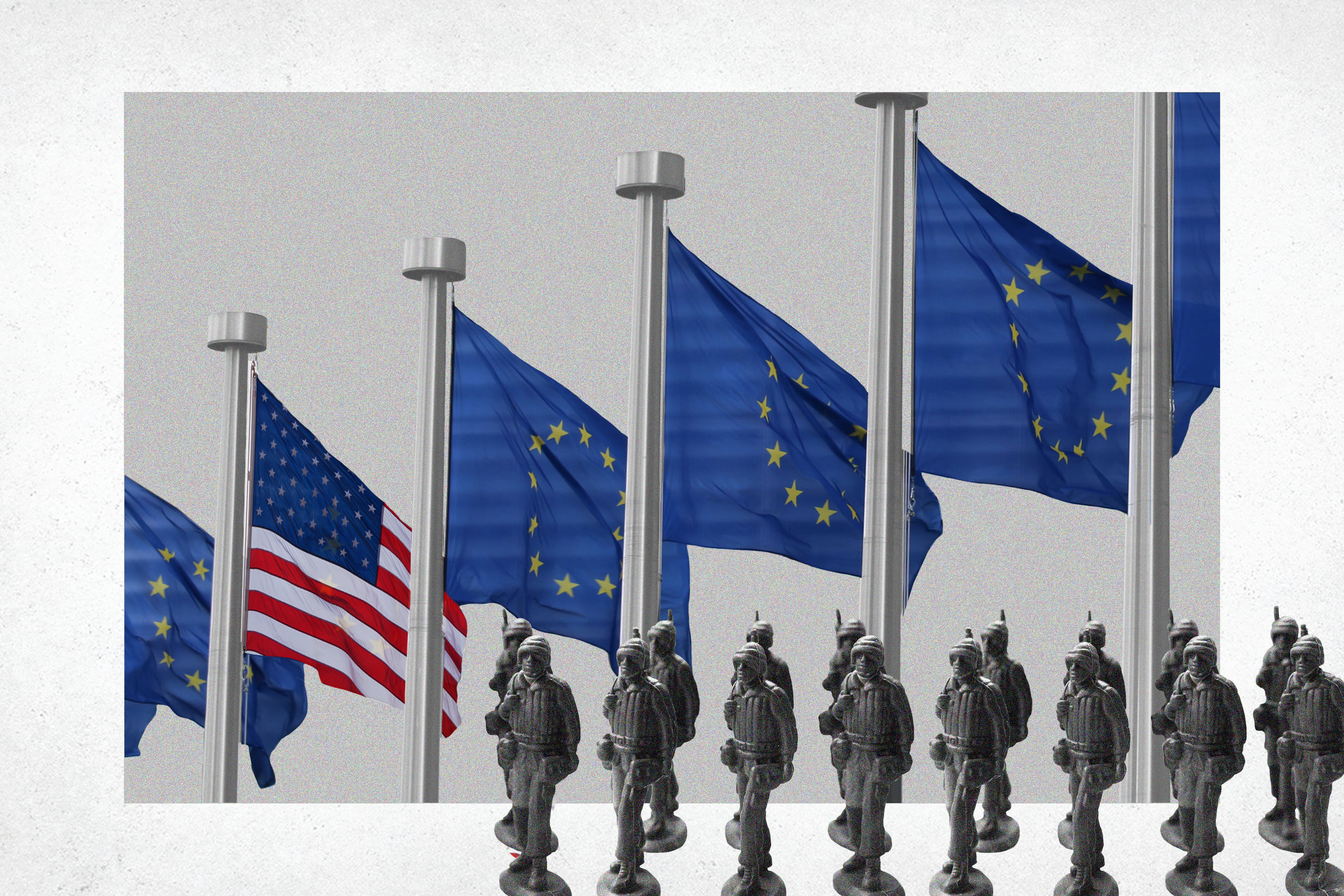September 30, 2021
Should Europe depend on the United States for its defense, as it has done since the end of World War II? Or do changing times demand that Europe develop an independent military capability? In other words, does Europe need "strategic autonomy?"
This debate, which began in the Cold War's early days, is now heating up again across Europe.
What is "strategic autonomy"? It's the ability to exert military power abroad without help. For that, you need more than just lots of troops willing and able to fight. (EU countries in NATO already have 1.26 million troops in service.) You also need the equipment and trained personnel to move large numbers of your soldiers and all their equipment by air or sea to sometimes far-flung places. You need state-of-the-art air defense systems. You need seamless communication to ensure your forces are working in harmony. From the founding of NATO in 1949 until today, Europe has relied on the US military to provide these things.
Who wants Europe to have this power? France is the EU's loudest hawk. It's the one European country with an ability (even if it's limited) to project power outside Europe. Even before then-president Charles de Gaulle pulled France out of NATO's command structure in 1966, French officials have called for a European foreign and defense policy that's independent of Washington. (France rejoined in 2009.) It's needed, they say, to properly defend European (cynics would say French) interests in the Middle East, Africa, and Asia.
Why might other Europeans start to like this idea? The end of the Cold War removed the Soviet threat to Western Europe, easing fears that American muscle might be needed to defend the continent itself. And since then, US presidents have given Europeans ample reason to doubt that Washington is a dependable ally. Let us count the ways:
- George W. Bush invaded Iraq despite strong European objections.
- Barack Obama dithered on the Arab Spring and Syrian civil war, both of which proved crucial for Europe in the form of a migrant crisis in 2015-16.
- Donald Trump questioned the value of US alliances in general and NATO in particular.
- President Joe Biden is now the latest US leader to emphasize the need to focus more on China and less on Europe and the Middle East. The dustup with France over the newly announced security pact with Australia and the UK is the latest example. European anger that Biden botched the NATO withdrawal from Afghanistan hasn't helped.
- Europeans know they have no idea where US politics is headed next.
Why hasn't Europe embraced "strategic autonomy" already? There are several reasons:
- Defense is expensive. Most European countries are still happy to have Americans help pay for it.
- Many Eastern Europeans, mindful of Russian aggression against Ukraine, still fear the Kremlin and want the military superpower to back their security.
- Germany, Europe's lead economy, remains deeply reluctant to send its soldiers into combat missions abroad or to accept the costs and risks likely to follow French-led interventions in other regions.
So, does this debate have a future? Probably, because the world is changing in ways that favor greater European strategic independence over time. The UK, a longtime defender of strong transatlantic defense ties, has left the EU. China's continued rise will intensify pre-existing US and European differences over how to respond. The possibility that Trump — or someone with a similarly transactional view of alliances — could come back to the White House means Europeans can't ever be totally confident in US commitments.
All these realities will bolster the arguments of those who want a more militarily robust Europe, one that can eventually become a more equal partner with the US and follow a more independent path.
More For You
A photograph posted by U.S. President Donald Trump on his Truth Social account shows him sitting next to CIA Director John Ratcliffe as they watch the U.S. military operation in Venezuela from Trump's Mar a Lago resort, in Palm Beach, Florida, U.S., January 3, 2026.
@realDonaldTrump/Handout via REUTERS
Most Popular
- YouTube
In this "ask ian," Ian Bremmer analyzes Trump’s recent meeting with Zelensky and how close (or far) Russia and Ukraine are from a peace deal.
Syrian President Ahmed al-Sharaa attends the military parade of the Syrian army in Umayyad Square in central Damascus to mark the one-year anniversary of the fall of the Assad regime, on Dec. 8, 2025.
Mohammed Al-Rifai/dpa via Reuters Connect
A year ago this month, Syria’s brutal dictatorship collapsed. There are signs of recovery, but sectarian violence threatens to undermine the optimism.
© 2025 GZERO Media. All Rights Reserved | A Eurasia Group media company.
